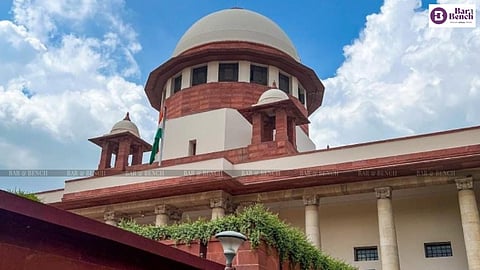
- Latest Legal News
- News
- Dealstreet
- Viewpoint
- Columns
- Interviews
- Law School
- Legal Jobs
- हिंदी
- ಕನ್ನಡ

The Supreme Court has held that teachers employed in government-aided schools are not entitled to gratuity under the Payment of Gratuity Act, 1972, and that their retiral benefits would be governed by rules framed under Article 309 of the Constitution of India instead [Vikram Bhalchandra Ghongade v. The Headmistress, Girls High School and Junior College, Anji (Mothi) and ors]